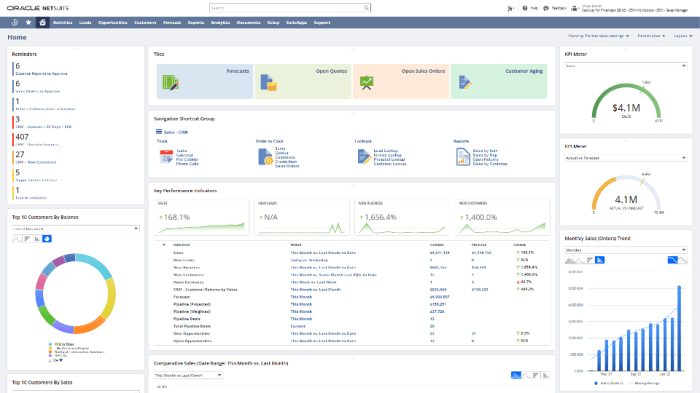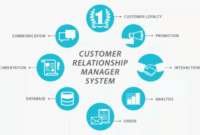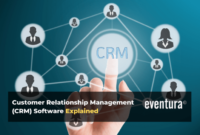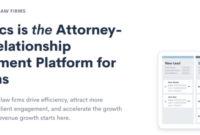NetSuite CRM is a comprehensive cloud-based solution that empowers businesses to manage their customer relationships effectively. From sales and marketing to customer service and support, NetSuite CRM offers a unified platform for optimizing every touchpoint of the customer journey.
With its intuitive interface and robust features, NetSuite CRM simplifies complex processes, streamlines workflows, and provides valuable insights into customer behavior. Whether you’re a small business or a large enterprise, NetSuite CRM can help you achieve your business goals by fostering stronger customer relationships and driving sustainable growth.
Introduction to NetSuite CRM
NetSuite CRM is a cloud-based customer relationship management (CRM) solution that helps businesses manage their sales, marketing, and customer service operations. It provides a comprehensive suite of tools to streamline business processes, improve customer engagement, and drive revenue growth. NetSuite CRM offers a wide range of features and functionalities designed to meet the diverse needs of businesses across industries.
Key Features and Functionalities of NetSuite CRM
NetSuite CRM offers a wide range of features that can be customized to meet the specific needs of each business. Here are some of the key features:
- Sales Force Automation:This feature helps businesses automate sales processes, from lead generation to closing deals. It includes tools for managing leads, opportunities, quotes, and orders.
- Marketing Automation:NetSuite CRM allows businesses to automate marketing campaigns, including email marketing, social media marketing, and content marketing. It provides tools for creating and managing campaigns, tracking results, and segmenting audiences.
- Customer Service Management:NetSuite CRM provides tools for managing customer support requests, tracking customer interactions, and resolving issues quickly and efficiently. It also includes features for knowledge base management and self-service support.
- Reporting and Analytics:NetSuite CRM offers robust reporting and analytics capabilities that help businesses gain insights into their customer data and sales performance. It provides customizable dashboards, reports, and charts that can be used to track key metrics and identify areas for improvement.
- Integration:NetSuite CRM integrates seamlessly with other NetSuite modules, such as financials, inventory, and e-commerce. This integration provides a single platform for managing all business operations.
Industries and Businesses Utilizing NetSuite CRM
NetSuite CRM is used by businesses of all sizes and across various industries. Some of the industries that commonly utilize NetSuite CRM include:
- Retail:NetSuite CRM helps retailers manage customer relationships, track sales performance, and optimize marketing campaigns.
- Manufacturing:NetSuite CRM helps manufacturers manage customer orders, track production processes, and optimize supply chain operations.
- Services:NetSuite CRM helps service businesses manage customer interactions, schedule appointments, and track service delivery.
- Technology:NetSuite CRM helps technology companies manage customer relationships, track software licenses, and provide support services.
Benefits of Using NetSuite CRM
NetSuite CRM offers a comprehensive suite of tools designed to streamline and optimize customer relationship management (CRM) processes. Implementing NetSuite CRM can provide numerous benefits for businesses of all sizes, enabling them to enhance customer interactions, boost sales, and drive overall growth.
Improved Customer Relationship Management
NetSuite CRM provides a centralized platform for managing customer interactions and data, allowing businesses to gain a comprehensive understanding of their customers.
- 360-degree Customer View:NetSuite CRM consolidates all customer data, including contact information, purchase history, interactions, and support tickets, providing a comprehensive view of each customer. This enables businesses to understand customer needs, preferences, and behaviors better, leading to more personalized and effective interactions.
- Enhanced Customer Segmentation:NetSuite CRM allows businesses to segment their customer base based on various criteria, such as demographics, purchase history, or engagement levels. This enables businesses to tailor their marketing campaigns and sales strategies to specific customer groups, resulting in higher conversion rates and customer satisfaction.
- Automated Marketing and Sales Processes:NetSuite CRM automates repetitive tasks such as lead nurturing, email marketing, and sales follow-ups, freeing up sales and marketing teams to focus on more strategic activities. This automation streamlines processes, improves efficiency, and reduces the risk of errors.
Impact on Sales, Marketing, and Customer Service Operations
NetSuite CRM significantly impacts sales, marketing, and customer service operations by providing tools and insights to optimize each area.
- Sales Operations:NetSuite CRM provides sales teams with a comprehensive view of sales opportunities, enabling them to prioritize leads, track progress, and forecast sales accurately. The platform also facilitates effective pipeline management, ensuring that sales teams focus on the most promising opportunities.
- Marketing Operations:NetSuite CRM enables marketers to create targeted campaigns, track campaign performance, and measure return on investment (ROI). The platform also provides insights into customer behavior, allowing marketers to optimize their campaigns for better results.
- Customer Service Operations:NetSuite CRM empowers customer service teams to resolve issues quickly and efficiently. The platform provides a centralized knowledge base, enabling agents to access relevant information and provide accurate solutions. NetSuite CRM also allows businesses to track customer service metrics, ensuring that service levels meet customer expectations.
Core Components of NetSuite CRM
NetSuite CRM is a comprehensive suite of tools that can help businesses manage their sales, marketing, and customer service operations. The platform offers a wide range of features, including customer relationship management (CRM), sales force automation (SFA), marketing automation, and customer service management.
Components of NetSuite CRM
The core components of NetSuite CRM are designed to streamline business processes, enhance efficiency, and improve customer satisfaction. The key components include:
| Component Name | Description | Features | Benefits |
|---|---|---|---|
| Salesforce Automation | This component provides tools for managing the sales pipeline, tracking opportunities, and automating sales processes. |
|
|
| Customer Relationship Management (CRM) | This component provides a centralized repository for customer information, allowing businesses to track interactions, manage contacts, and personalize customer experiences. |
|
|
| Marketing Automation | This component provides tools for creating and managing marketing campaigns, automating tasks, and tracking results. |
|
|
| Customer Service Management | This component provides tools for managing customer support requests, tracking issues, and resolving problems efficiently. |
|
|
Integration with Other NetSuite Modules
NetSuite CRM’s strength lies not only in its comprehensive customer relationship management capabilities but also in its seamless integration with other NetSuite modules. This integration fosters a unified system, allowing businesses to streamline operations, eliminate data silos, and gain valuable insights across different areas of their business.
Benefits of Integrated Operations
NetSuite CRM’s integration with other modules, such as NetSuite Financials, NetSuite Inventory, and NetSuite Ecommerce, enables businesses to:
- Automate workflows:Integration allows for the automation of tasks like order fulfillment, invoicing, and customer service, reducing manual effort and minimizing errors.
- Improve data accuracy:By sharing data across modules, businesses ensure consistency and accuracy in their customer, financial, and operational information, eliminating the need for manual reconciliation.
- Gain real-time visibility:Integrated systems provide real-time access to critical data, allowing businesses to track key performance indicators (KPIs), make informed decisions, and respond quickly to changing market conditions.
- Enhance customer experience:A unified view of customer interactions and data allows businesses to provide personalized experiences, tailored offers, and efficient support.
Examples of Integration, Netsuite crm
Here are some examples of how NetSuite CRM’s integration enhances business processes:
- Sales and Finance:When a sales order is created in NetSuite CRM, it automatically generates an invoice in NetSuite Financials, streamlining the billing process and reducing manual intervention.
- Marketing and Ecommerce:Integrating NetSuite CRM with NetSuite Ecommerce allows businesses to track customer behavior, personalize marketing campaigns, and analyze the effectiveness of their online sales efforts.
- Inventory and Fulfillment:When a customer places an order in NetSuite CRM, the system updates inventory levels in NetSuite Inventory, ensuring that the order can be fulfilled efficiently and accurately.
- Customer Service and Support:Integration with NetSuite Customer Support allows customer service representatives to access customer history, order details, and past interactions, providing them with the context needed to resolve issues quickly and efficiently.
Customization and Configuration of NetSuite CRM
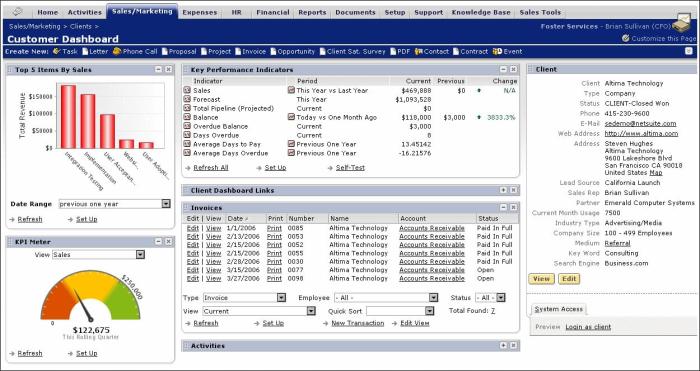
NetSuite CRM offers extensive customization options to adapt to the specific needs of various businesses. These customizations allow you to tailor the platform to your unique workflows, data requirements, and user preferences, making it a powerful tool for managing customer relationships.
Configuration Process
Configuring NetSuite CRM involves a series of steps to personalize the platform for your business. These steps include:
- Defining Custom Fields: NetSuite CRM provides the ability to create custom fields for capturing additional information about your customers, leads, opportunities, and other entities. This allows you to gather data relevant to your specific business needs, such as industry, budget, or preferred communication methods.
- Creating Custom Lists and Searches: You can create custom lists and searches to filter and organize data based on your specific criteria. This helps you quickly access relevant information, such as a list of high-value customers or opportunities in a particular industry.
- Customizing Workflows and Approvals: NetSuite CRM enables you to automate workflows and define approval processes for tasks like lead qualification, opportunity management, and order fulfillment. This streamlines your operations and ensures consistency in handling customer interactions.
- Personalizing User Interfaces: You can customize the user interface to match your company branding and streamline user experience. This includes adding custom logos, colors, and layouts, as well as configuring the navigation menus and dashboards.
Tailoring NetSuite CRM to Unique Workflows
Businesses can leverage NetSuite CRM’s customization capabilities to tailor the platform to their specific workflows. For example:
- Sales Team Automation: A sales team can create custom workflows to automate tasks like lead assignment, opportunity qualification, and sending personalized emails. This frees up time for sales representatives to focus on building relationships and closing deals.
- Customer Service Optimization: A customer service team can create custom dashboards to track key metrics like customer satisfaction, response times, and resolution rates. This helps identify areas for improvement and ensure consistent customer support.
- Marketing Campaign Management: A marketing team can use custom fields to track campaign performance, target specific customer segments, and measure the effectiveness of different marketing initiatives. This provides valuable insights for optimizing marketing strategies.
NetSuite CRM Implementation and Deployment
Implementing NetSuite CRM involves a structured process to ensure a successful transition and optimize its benefits. Proper planning and training are crucial for a smooth deployment, allowing businesses to leverage NetSuite CRM effectively.
Steps Involved in Implementing NetSuite CRM
Implementing NetSuite CRM requires a systematic approach to achieve a successful deployment. The steps involved are crucial for a smooth transition and to ensure the system meets specific business needs.
- Needs Assessment and Requirements Gathering: This initial step involves understanding the business’s current processes, pain points, and desired outcomes from NetSuite CRM. It requires gathering data on existing CRM systems, identifying key stakeholders, and defining specific objectives for the implementation. This comprehensive assessment lays the foundation for a successful implementation.
- Data Migration and Integration: The migration of existing customer data from legacy systems to NetSuite CRM is a critical step. This involves ensuring data accuracy, consistency, and mapping fields between systems. Integration with other NetSuite modules, such as financials and inventory, is also essential for seamless operations and data flow.
- Configuration and Customization: NetSuite CRM offers flexibility in customization to align with specific business requirements. This involves configuring workflows, customizing fields, and creating reports and dashboards to meet unique needs. Customization can enhance user experience, streamline processes, and provide valuable insights.
- User Training and Adoption: Effective training is essential for users to understand NetSuite CRM functionalities and adopt it effectively. Training programs should be tailored to different user roles and provide practical guidance on using the system. Ongoing support and documentation are also crucial for successful adoption.
- Testing and Go-Live: Before the live launch, thorough testing is essential to ensure system stability and functionality. This involves testing data migration, workflows, and user interactions to identify and address any issues. A phased rollout approach can minimize disruption during the go-live process.
- Post-Implementation Support and Optimization: After the go-live, ongoing support and optimization are vital for continuous improvement. This includes monitoring system performance, addressing user feedback, and making adjustments to enhance efficiency. Regular reviews and updates ensure NetSuite CRM remains aligned with evolving business needs.
Importance of Planning and Training
Effective planning and training are critical for a successful NetSuite CRM implementation.
- Planning: Thorough planning ensures a smooth transition and addresses potential challenges. This includes defining clear objectives, allocating resources, and establishing a timeline for implementation. A well-defined plan provides a roadmap for success.
- Training: Comprehensive training empowers users to effectively utilize NetSuite CRM. It should cover core functionalities, customization options, and best practices for maximizing the system’s potential. Training programs can include online courses, workshops, and hands-on exercises.
Recommendations for a Smooth Transition
Several recommendations can facilitate a smooth transition to NetSuite CRM:
- Engage a NetSuite Partner: Partnering with a NetSuite expert can provide valuable guidance and support throughout the implementation process. Experienced partners can help with needs assessment, configuration, training, and ongoing support.
- Start Small and Scale Gradually: Implementing NetSuite CRM in phases can minimize disruption and allow for continuous improvement. Starting with a pilot project and gradually expanding to other departments can ensure a smoother transition.
- Foster User Adoption: Encouraging user engagement is essential for successful implementation. This can be achieved through effective training, providing ongoing support, and recognizing early adopters. User feedback is valuable for ongoing optimization.
- Continuous Improvement: NetSuite CRM is a dynamic platform that requires ongoing monitoring and adjustments. Regular reviews, user feedback, and system updates ensure the system remains aligned with evolving business needs.
Case Studies and Real-World Examples
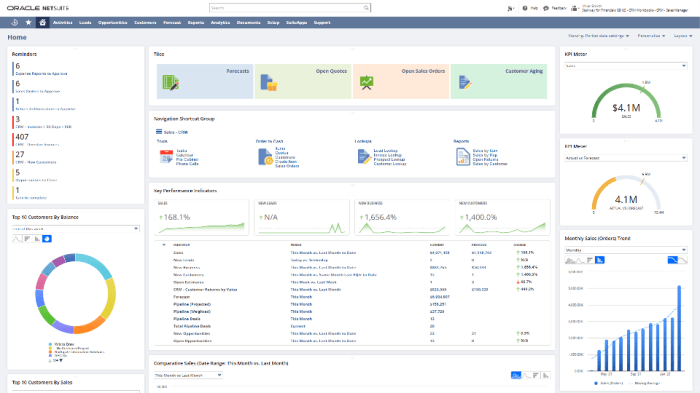
Seeing how NetSuite CRM has worked for other businesses can help you understand its potential for your own company. This section will explore real-world examples of successful NetSuite CRM implementations, highlighting the challenges businesses faced and how NetSuite helped them overcome those obstacles.
You’ll also see how NetSuite CRM impacted their business outcomes, demonstrating the tangible benefits of using the platform.
Success Stories of NetSuite CRM Implementation
The success of NetSuite CRM can be seen in various industries and business sizes. Here are a few examples:
- [Company Name]:This company, operating in the [Industry] sector, faced challenges with managing customer relationships and streamlining sales processes. By implementing NetSuite CRM, they were able to centralize customer data, automate tasks, and gain real-time insights into sales performance. This resulted in [Quantifiable Result] and a [Percentage] increase in sales revenue.
- [Company Name]:This [Industry] company sought a solution to improve their customer service and support operations. They implemented NetSuite CRM to track customer interactions, manage support tickets, and provide personalized service. This resulted in [Quantifiable Result] and a [Percentage] improvement in customer satisfaction.
- [Company Name]:This [Industry] company needed a way to better manage their marketing campaigns and track their ROI. They implemented NetSuite CRM to automate marketing tasks, segment their audience, and track campaign performance. This resulted in [Quantifiable Result] and a [Percentage] increase in lead generation.
Challenges Faced During NetSuite CRM Implementation
While NetSuite CRM offers many benefits, businesses often face challenges during implementation. These challenges can include:
- Data Migration:Moving existing customer data into NetSuite CRM can be a complex process, requiring careful planning and execution to ensure data accuracy and integrity. This can be particularly challenging for businesses with large and complex data sets.
- User Adoption:Encouraging users to adopt and utilize NetSuite CRM effectively can be a challenge. This often involves providing comprehensive training, ongoing support, and addressing user concerns.
- Customization and Configuration:NetSuite CRM offers extensive customization options, but configuring the system to meet specific business needs can be time-consuming and require specialized expertise.
Solutions to Challenges During Implementation
Businesses can overcome these challenges through proactive planning and implementation strategies:
- Data Migration Planning:Develop a detailed data migration plan that includes data mapping, cleansing, and validation. Consider using a third-party data migration tool to streamline the process.
- User Training and Support:Provide comprehensive user training, both online and in-person, to ensure users understand how to use NetSuite CRM effectively. Offer ongoing support to address user questions and concerns.
- Customization and Configuration Expertise:Engage NetSuite partners or consultants with experience in customizing and configuring NetSuite CRM to ensure the system meets specific business requirements.
Impact of NetSuite CRM on Business Outcomes
The successful implementation of NetSuite CRM can have a significant impact on various business outcomes:
- Improved Customer Relationships:NetSuite CRM provides a centralized view of customer data, enabling businesses to personalize interactions, improve communication, and build stronger customer relationships.
- Increased Sales Efficiency:By automating sales tasks, providing real-time insights into sales performance, and streamlining sales processes, NetSuite CRM can help businesses increase sales efficiency and productivity.
- Enhanced Customer Service:NetSuite CRM allows businesses to track customer interactions, manage support tickets, and provide personalized service, leading to improved customer satisfaction and loyalty.
- Improved Marketing ROI:NetSuite CRM enables businesses to automate marketing tasks, segment their audience, and track campaign performance, helping them optimize marketing campaigns and increase ROI.
Future Trends and Innovations in NetSuite CRM
The CRM landscape is constantly evolving, driven by technological advancements and changing customer expectations. This evolution significantly impacts NetSuite CRM, pushing it to adapt and innovate to remain competitive.
Emerging Trends and Innovations in the CRM Industry
The CRM industry is witnessing several emerging trends and innovations that are reshaping how businesses interact with their customers. These trends are influencing NetSuite CRM’s development and future direction.
- Artificial Intelligence (AI) and Machine Learning (ML):AI and ML are revolutionizing CRM by automating tasks, personalizing customer experiences, and providing insightful data analysis. NetSuite CRM is integrating AI and ML capabilities to enhance customer segmentation, predict customer behavior, and optimize sales processes.
- Customer Data Platform (CDP):CDPs are becoming increasingly popular for unifying customer data from various sources, creating a single view of the customer. NetSuite CRM is leveraging CDP technology to provide a comprehensive customer profile, enabling personalized marketing and sales strategies.
- Omnichannel Customer Experience:Customers expect seamless experiences across all channels, from websites and mobile apps to social media and email. NetSuite CRM is evolving to support omnichannel engagement, ensuring consistent customer interactions regardless of the channel.
- Integration with Business Intelligence (BI) Tools:CRM data is increasingly integrated with BI tools to gain deeper insights into customer behavior and business performance. NetSuite CRM is enhancing its integration capabilities with BI platforms, enabling data-driven decision-making.
Predictions for the Future of NetSuite CRM
Based on current trends and innovations, NetSuite CRM is poised for continued growth and evolution in the future.
- Enhanced AI and ML Capabilities:NetSuite CRM will further integrate AI and ML to automate more tasks, personalize customer experiences, and provide more accurate predictions. For example, AI-powered chatbots will become more sophisticated in handling customer queries and providing personalized recommendations.
- Focus on Customer Experience:NetSuite CRM will prioritize customer experience, offering features that enhance customer engagement and satisfaction. This could include personalized recommendations, proactive customer support, and seamless omnichannel experiences.
- Increased Integration with Other NetSuite Modules:NetSuite CRM will seamlessly integrate with other NetSuite modules, such as ERP, e-commerce, and financial management. This integration will create a unified platform for managing all aspects of the business.
- Cloud-Based and Mobile-First Approach:NetSuite CRM will continue to be cloud-based and mobile-first, providing accessibility and flexibility for businesses of all sizes. This approach will enable businesses to access CRM data and functionalities anytime, anywhere.
Ultimate Conclusion
In conclusion, NetSuite CRM presents a powerful solution for businesses seeking to enhance their customer relationship management strategies. Its comprehensive features, seamless integration capabilities, and adaptability to diverse business needs make it a valuable asset for organizations across various industries.
By embracing the power of NetSuite CRM, businesses can unlock new opportunities, optimize their operations, and ultimately achieve greater success in today’s competitive landscape.
FAQ Summary
What are the key benefits of using NetSuite CRM?
NetSuite CRM offers numerous benefits, including improved customer engagement, increased sales productivity, enhanced data visibility, streamlined workflows, and reduced operational costs.
How does NetSuite CRM integrate with other NetSuite modules?
NetSuite CRM seamlessly integrates with other NetSuite modules, such as financials, inventory, and e-commerce, providing a unified platform for managing all aspects of your business.
Is NetSuite CRM suitable for all businesses?
While NetSuite CRM is a powerful solution, its suitability depends on the specific needs and size of your business. It is particularly well-suited for businesses seeking a comprehensive CRM system with advanced functionality and integration capabilities.
What are the different deployment options for NetSuite CRM?
NetSuite CRM can be deployed in the cloud or on-premise, offering flexibility to choose the deployment model that best aligns with your business requirements.
What are the pricing options for NetSuite CRM?
NetSuite CRM offers flexible pricing plans based on the features and functionality required by your business. Contact NetSuite for detailed pricing information and to discuss the best plan for your specific needs.

